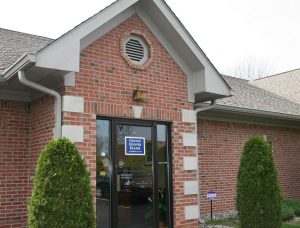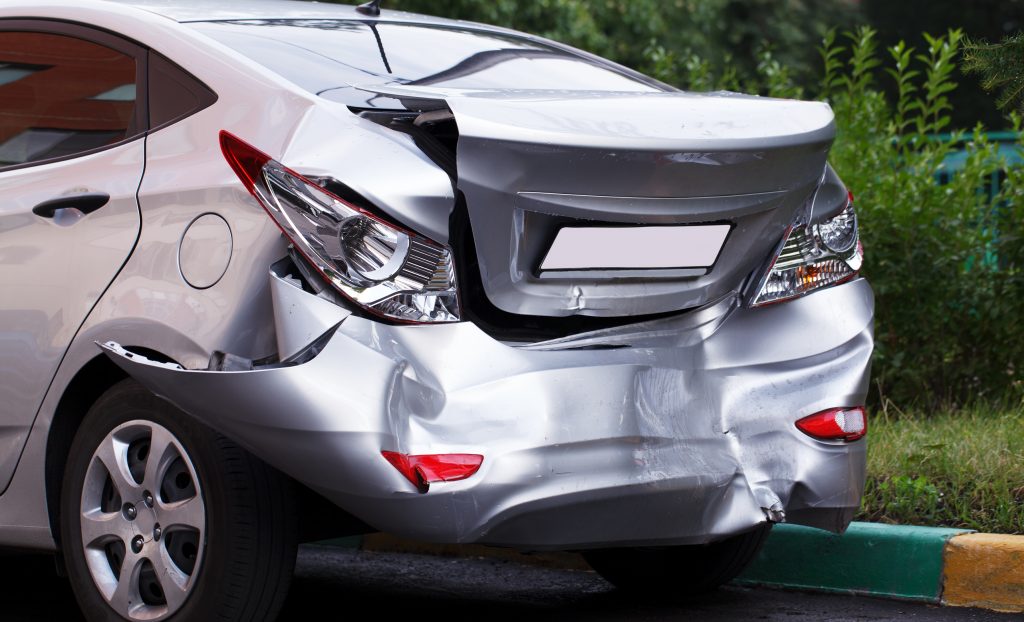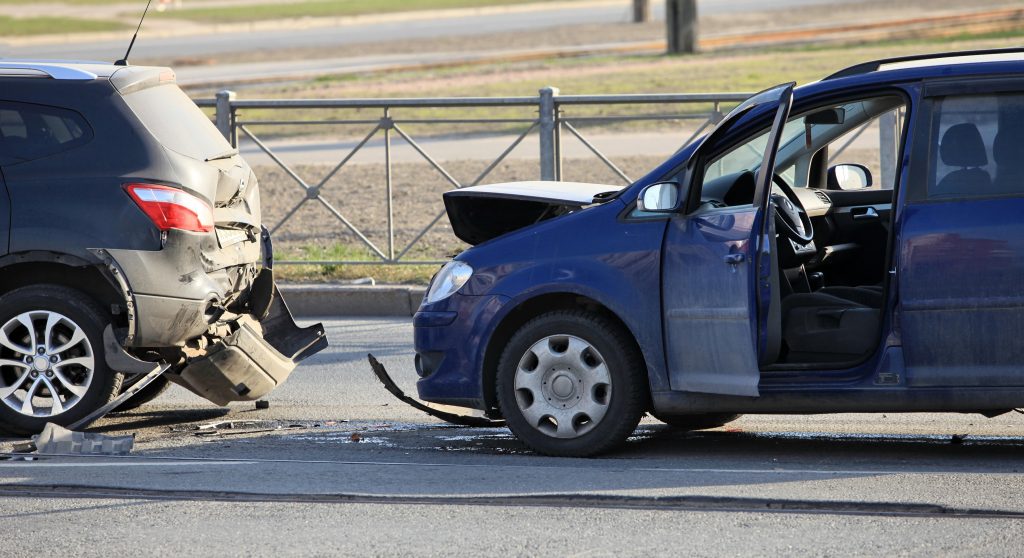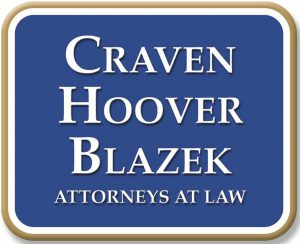One of the most fundamental elements of an auto accident claim is determining liability. In most car accident cases, the at-fault party is fairly easy to point out. In such cases, the driver to blame for an accident would be responsible for the other driver’s resulting damages, such as auto repairs, medical expenses and pain and suffering. The at-fault driver’s insurance carrier would have to pay for the damages the at-fault driver caused.
But when a car accident starts with one driver and continues down a line of other drivers in a chain reaction, who would be liable then? Would each driver that comes into contact with the vehicle in front of them be held liable? What if the driver in the back started the damaging domino effect?
Well, there is no straight answer really. These kinds of auto accidents can become complex, and therefore, require the guidance of a seasoned accident attorney. In the meantime, continue below to review some basic facts about chain reaction car accidents and liability, plus information on how to move forward with an Indiana auto accident injury claim.
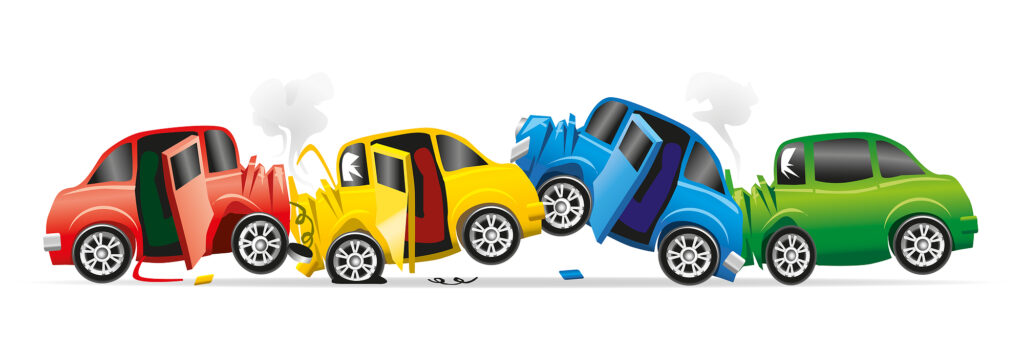
Chain Reaction Auto Collisions
Domino-effect car collisions usually happen from the back and impact cars in the front. Imagine two cars are parked at a stop light and a drunk driver or inattentive driver approaching the light does not stop, or is unable to stop in time, thus colliding into the back of the second car in line, which causes that driver’s car to rear end the first car in line.
When the sudden and unexpected impact coming from the rear of a vehicle is so strong that it causes the vehicle to jerk forward and hit the vehicle in front of them, bodily injury sometimes occurs to everyone involved, including passengers. The most common types of injuries that result from chain reaction car accidents include whiplash, neck injuries, back injuries, hip injuries, spinal injuries, child injuries, concussions, and orthopedic injuries.
Assigning Liability in a Domino Effect Car Accident
When a person is wrongfully injured in a chain reaction car accident, they deserve justice in the form of compensation regardless of how many drivers were involved. Although such cases are sometimes challenging, it is possible for injured victims to recover damages with the help of a seasoned auto accident lawyer in Indiana.
As for assigning liability in a chain reaction car accident or pileup, Indiana uses a lengthy investigatory process to examine the details of the accident and each driver’s contribution. Here in Indiana, the most common causes for domino effect car collisions are impaired driving, speeding, and following too closely to the car in front. If you can avoid these behaviors, you can reduce your chances of being involved in a car accident of any fashion.
If you were recently hurt in a car accident that involved other drivers, seek out professional advice on your rights to pursing full and fair compensation through a personal injury claim. Contact the Law Office of Craven, Hoover, and Blazek P.C. at 317-881-2700 to schedule a free case evaluation with an experienced and compassionate auto accident lawyers in Indianapolis, Indiana. We represent clients throughout the state of Indiana, and can meet over phone, video, or in-person at our Indy-based office.
Related Posts:
Which Driver is Liable for a Rear End Accident in Indiana?
Who is Liable for Driveway Backup Accidents?
Types of Legal Liability for Driving Another’s Vehicle
Who is Liable When a Driver Hits a Pedestrian?



